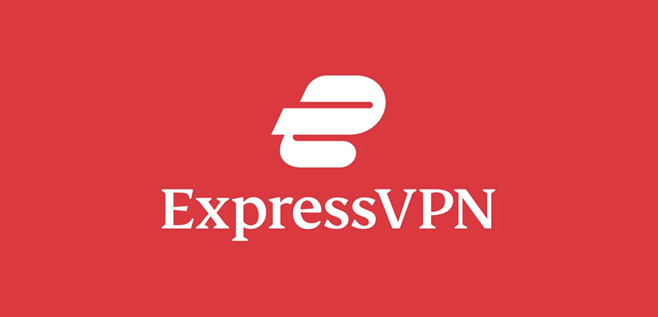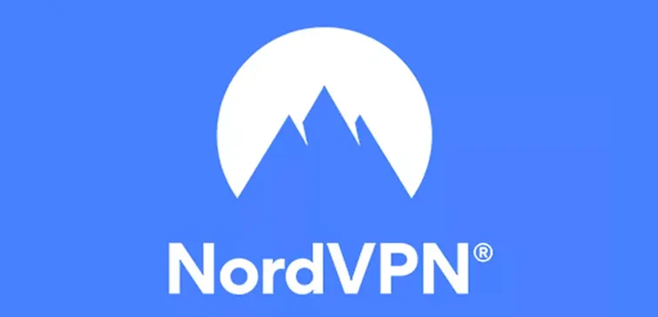Published 26 Apr 2024
How VPNs Contribute to the Safety of Crypto Staking and Yield Farming

As cryptocurrency investors and enthusiasts continue to seek innovative ways to maximize their returns, crypto staking and yield farming have gained significant traction in the world of decentralized finance (DeFi). While these lucrative opportunities offer attractive rewards, they also come with inherent risks that can jeopardize your digital assets.
One often overlooked tool that can significantly enhance the security of your staking and yield farming activities is a Virtual Private Network (VPN). In this article, we will explore the role of VPNs in safeguarding your crypto ventures and provide insights on how to choose the right VPN for your needs.
Crypto staking and yield farming involve locking up or lending your digital assets to support blockchain networks and earn passive income. However, engaging in these activities exposes users to potential security threats, such as smart contract vulnerabilities, platform hacks, and various forms of cyberattacks. By incorporating a VPN into your crypto endeavors, you can add an extra layer of protection to secure your digital assets and personal information.
We aim to highlight the importance of VPNs in ensuring the safety of your crypto staking and yield farming activities. Let's discuss the various ways VPNs contribute to security and offer guidance on selecting the right service for your specific needs. By the end of this article, you will have a better understanding of how integrating a VPN into your crypto activities can help protect investments and provide you with peace of mind.

Understanding crypto staking and yield farming
Delving into the world of crypto staking and yield farming reveals an array of opportunities for investors to generate passive income. To fully comprehend the importance of security in these activities, it's essential to understand the underlying concepts and the risks they entail.
Crypto staking, in essence, is the process of holding and locking up a certain amount of cryptocurrency in a wallet to participate in the validation of transactions on a proof-of-stake (PoS) blockchain network. By staking their tokens, users contribute to the network's security and consensus mechanism, and in return, they receive rewards in the form of newly minted coins or transaction fees. Some popular staking cryptocurrencies include Ethereum (ETH), Cardano (ADA), and Polkadot (DOT).
Yield farming, on the other hand, is a more advanced strategy that involves lending or borrowing crypto assets to generate high returns. This is typically achieved by providing liquidity to decentralized exchanges (DEXs) or participating in various DeFi protocols. In return for their contribution, liquidity providers earn fees from trading activities or newly issued tokens as rewards. Some well-known yield farming platforms include Uniswap, Curve Finance, and SushiSwap.
While both staking and yield farming offer enticing rewards, they also come with inherent risks. Smart contract vulnerabilities, platform hacks, and various cyberattacks can lead to the loss of funds or compromise of personal information. Moreover, the pseudo-anonymous nature of the crypto space makes it an attractive target for cybercriminals looking to exploit unsuspecting users. In this context, employing a VPN can significantly enhance the security of your staking and yield farming activities.

The role of VPNs in enhancing online security
As the digital landscape evolves, so do the threats that lurk within it. To navigate this ever-changing environment safely, understanding and utilizing the right tools is crucial. One such tool is a Virtual Private Network (VPN), which plays a significant role in enhancing online security for various activities, including crypto staking and yield farming.
A VPN is a powerful technology designed to create a secure, encrypted tunnel between your device and the internet. By routing your internet connection through this tunnel, a VPN effectively masks your true IP address and location, making it difficult for hackers, cybercriminals, or even your Internet Service Provider (ISP) to monitor your online activities, intercept your data, or trace your actions back to you.
In the context of crypto staking and yield farming, using a VPN can provide several security benefits that help safeguard your digital assets and personal information. The encryption offered by VPNs ensures that any data transmitted between your device and the staking or yield farming platform remains secure and protected from eavesdroppers. This is particularly important when accessing your wallet or entering sensitive information, as it helps prevent unauthorized access or data breaches. Moreover, the anonymity provided by a VPN makes it difficult for hackers to target you based on your geographical location or known online activities.

VPNs and crypto staking safety
In the realm of crypto staking, where users lock up their digital assets to participate in the validation of transactions, ensuring the safety of their investments is of utmost importance. This is where VPNs come into play, offering multiple layers of protection to shield users from potential threats.
One of the key benefits of using a VPN for crypto staking is the prevention of IP address tracking and geo-targeting. By masking your true IP address, a VPN makes it significantly more challenging for hackers or cybercriminals to track your online activities, identify your location, or target you based on your known digital footprint. This added layer of anonymity helps protect your staking assets and personal information from falling into the wrong hands.
Another crucial aspect of VPNs in enhancing crypto staking safety is securing the communication between users and staking platforms. When you connect to a staking platform using a VPN, your internet traffic is encrypted, ensuring that any data transmitted remains confidential and protected from potential eavesdroppers. This encryption is particularly vital when accessing your wallet or entering sensitive information, as it helps prevent unauthorized access or data breaches.
Lastly, VPNs play a significant role in mitigating the risks of man-in-the-middle attacks, a common cyber threat where an attacker intercepts and potentially alters the communication between two parties. By creating a secure, encrypted tunnel for your internet connection, a VPN makes it significantly more difficult for hackers to intercept or tamper with your data, thereby safeguarding your crypto staking activities from potential exploitation.

VPNs and yield farming security
In the world of yield farming, where users engage with various DeFi platforms to maximize their returns, security is paramount to protect digital assets and personal information. VPNs offer a valuable layer of protection in this context, addressing several potential threats that yield farmers may encounter.
One significant benefit of using a VPN for yield farming is protection from phishing and scam websites. As the DeFi landscape continues to grow, so does the number of malicious sites designed to steal users' funds or sensitive information. A VPN can help shield users from such threats by encrypting their internet traffic and making it more difficult for cybercriminals to track their online activities or target them with malicious links.
Another essential aspect of VPNs in enhancing yield farming security is ensuring safe access to DeFi platforms. When connecting to these platforms, users often transmit sensitive data, such as wallet addresses and private keys. A VPN encrypts this information, creating a secure tunnel that protects it from potential eavesdroppers.

Choosing the right VPN for crypto staking and yield farming
Selecting the right VPN for your staking and farming activities is crucial to ensure the highest level of security and privacy. With numerous VPN providers available, it's essential to evaluate their features and performance to make an informed decision. Here are some factors to consider when selecting a VPN for your crypto ventures:
- Strong encryption and security protocols
A reliable VPN provider should offer robust encryption and support for secure protocols, such as OpenVPN, IKEv2/IPSec, or WireGuard. These features ensure that your data remains protected while being transmitted between your device and the staking or yield farming platform.
- Strict no-logs policy
To maintain your privacy and prevent data leaks, choose a VPN provider that follows a strict no-logs policy. This means they do not store or collect any information about your online activities, ensuring your data remains private and cannot be traced back to you.
- High-speed connections
Engaging in crypto staking and farming activities requires a stable and fast internet connection. Opt for a VPN provider that offers high-speed servers to minimize latency and ensure smooth performance.
- Large server network
A VPN with a vast global server network allows you to connect to servers in various locations, providing flexibility and access to geo-restricted content. This can be particularly useful when accessing DeFi platforms or crypto exchanges that may be unavailable in your region.
- Compatibility with multiple devices
Ensure that the VPN provider supports various devices and operating systems, allowing you to secure your crypto activities across all your devices.
- User-friendly interface
A VPN with an intuitive and easy-to-use interface simplifies the process of connecting and managing the settings, making it more convenient for users who may not be tech-savvy.
- Customer support
Reliable customer support is essential when encountering issues or needing assistance with your VPN service. Look for providers that offer 24/7 live chat support, email support, or comprehensive FAQs and tutorials.
Recommendations for reputable VPN providers
Based on the factors mentioned above, here are some reputable VPN providers that cater to the needs of crypto enthusiasts and investors:

- ExpressVPN
Known for its high-speed connections, strong security features, and user-friendly interface, ExpressVPN is a popular choice among crypto users. It offers a vast server network, strict no-logs policy, and supports multiple devices and platforms.

- NordVPN
With a strong focus on security and privacy, NordVPN provides robust encryption, a large server network, and a strict no-logs policy. It also offers specialized servers for added security, such as double VPN and Onion over VPN.

- CyberGhost
CyberGhost is a user-friendly VPN provider that offers strong security features, a vast server network, and high-speed connections. It also supports multiple devices and platforms, making it a versatile choice for crypto users.

- Surfshark
Surfshark is a budget-friendly VPN provider that offers strong encryption, a strict no-logs policy, and high-speed connections. It also supports unlimited simultaneous connections, making it an excellent choice for users with multiple devices.

- Private Internet Access
Private Internet Access (PIA) is a well-established VPN provider known for its strong security features, vast server network, and compatibility with multiple devices and platforms. It offers customizable settings and a strict no-logs policy, making it a suitable choice for advanced users.
By carefully evaluating these factors and considering reputable VPN providers, you can ensure that your crypto staking and farming activities are secure and protected from potential threats.
Conclusion
In the rapidly evolving world of decentralized finance, crypto staking and yield farming have emerged as lucrative opportunities for investors to generate passive income. However, these activities come with inherent risks that can jeopardize users' digital assets and personal information. Incorporating a Virtual Private Network (VPN) into your crypto endeavors can significantly enhance the security of your staking and farming activities, providing an extra layer of protection against potential threats.
In conclusion, prioritizing your online security and adopting VPN solutions is really essential. By integrating a VPN into your crypto activities, you can protect your investments, safeguard your personal information, and enjoy peace of mind while navigating the world of decentralized finance. We encourage all users to take their online security seriously and harness the power of VPNs to ensure a safer and more secure crypto staking and farming experience.
Read More




 Get RateX Pro
Get RateX Pro

 20 Apr 2024
20 Apr 2024
